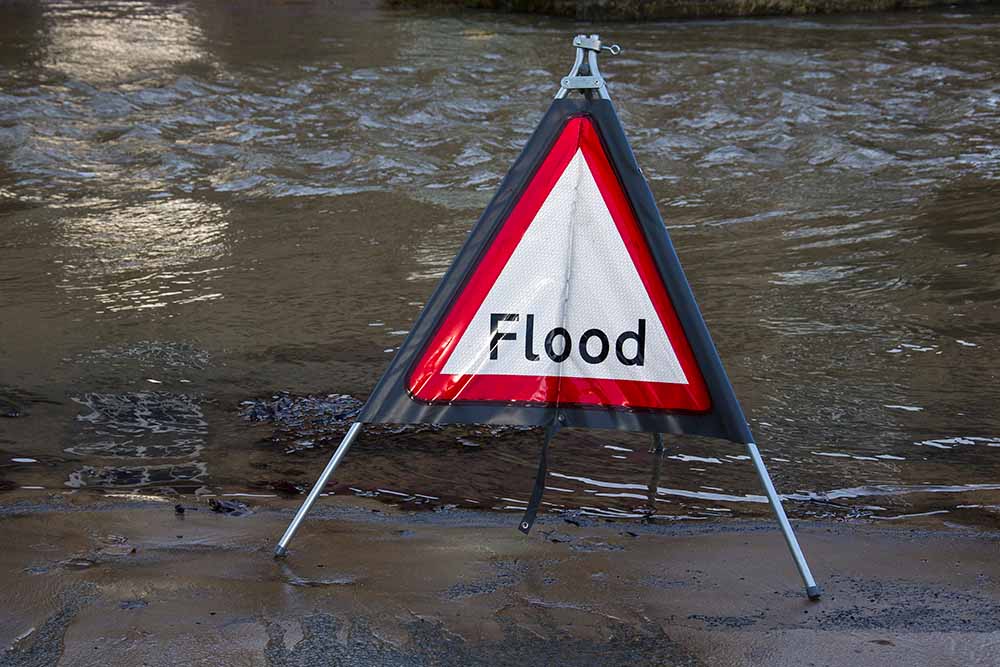
Protecting your home for Winter
August 7, 2023As Britain enjoys a pleasant enough summer and the rest of Europe swelters under a blazing sun, it might be difficult to envisage the battering that an English winter is likely to bring – and that’s only a few months away.
So that you’re well and truly prepared, therefore, let’s preview just some of the drama – not to say expensive property damage – those storms and flooding may bring.
Storms
Simply but aptly known as the Great Storm, a violent extratropical cyclone tore into many southern parts of the UK on the night of the 15th to the 16th of October 1987.
The hurricane-force winds resulted in 18 deaths in Britain and more in France. It is estimated that some 15 million trees in England were flattened – inevitably falling onto buildings, roads, cars, and homes. At the time, a country-wide insurance bill of some £2 billion was notched up. At today’s prices, the total cost of the damage to infrastructure and property has been calculated at £6 billion.
In the face of the coming winter storms, therefore, what can you do to protect life and limb while mitigating the effects of any property damage? Here is some advice, courtesy of The Met Office:
- batten down the hatches – securely fasten all doors and windows, especially those on the windward side of your home;
- park the car in your garage;
- if there’s any danger of a chimney collapsing (because of deteriorated pointing, say) make sure any beds below them are removed from the path of potentially falling debris; and
- put away or firmly secure garden furniture and structures that might otherwise be blown through your windows;
- when the storm strikes, stay indoors and keep any internal doors firmly shut;
- don’t attempt any repairs while the storm is raging but if you do need to venture outside, keep away from walls and trees;
- attempt to drive only if absolutely essential and then drive slowly and be hyper-cautious of side winds, especially if you are in a high-sided vehicle;
- when the storm has subsided and you venture out, remember that trees, walls, and buildings may not be standing so strongly or stably – give them a wide berth and do not touch any telephone or electricity cables that might be dangling down;
- remember to check on family, friends, and neighbours – especially the more vulnerable – to make sure they are safe and sound.
Flooding
Flooding poses a serious risk to homes practically anywhere in the UK and, as the Met Office warns, can put at risk your family, your property, and even your livelihood.
Although flooding can occur very quickly, fortunately, systems are in place not just to provide early warnings but also to give you some idea of the likelihood of such incidents. Visit the relevant webpages – there are separate ones for England, Wales, and Scotland – to sign up for the early warning services.
The better prepared you are, the more effectively you are likely to manage the risks to life and of flood damage to your property.
Have a flood plan
Have a flood plan, therefore, in which you have identified the immediate actions you might need to take – for example;
- shutting off utilities;
- listing contact details for the emergency services and your insurance company;
- removing important documents and valuables to a place of safety.
Have a pre-prepared emergency kit
Your advance planning will also allow you to put together the essential items you might need in such an emergency. Although many of the items – torches, first aid kit, water and snacks are largely matters of common sense, give it some thought so that you and your family are properly prepared. For example, make sure to include any medicines that you, your family or your pets may need.
Preparing your home against flood
The National Flood Forum observes that you’ll not avoid the risk of flooding altogether but that there are nevertheless steps you can take to mitigate the extent of any damage. The specific measures are likely to be tailored to individual properties but might start with very simple steps such as:
- using plastic bags to seal airbricks;
- moving lighter furniture and valuables upstairs;
- raising the height of electrical outlets and socket; and
- stocking up on plenty of sandbags.
You might also want to think about replacing some of the carpets in your home with tiled or solid floor coverings. You can read more tips here.
If you have suffered flooding, advise your insurance company at the earliest opportunity and, if you are able to return home, take whatever measures you can to mitigate any further damage.
For the eventual repairs and thorough cleaning of your home, you are likely to need expert advice.